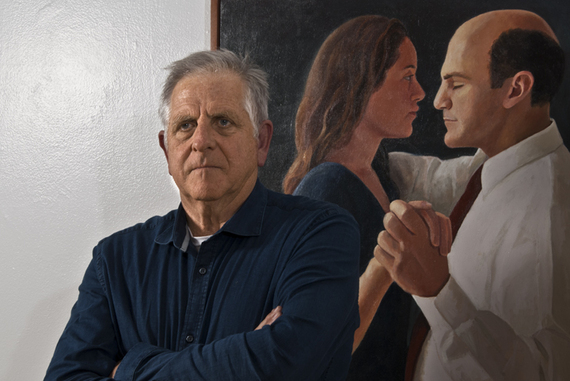A Challenge to the West
In 1971, my family and I spent some time in London on our way to and from Lebanon where I was going to visit family and to conduct research for my doctoral dissertation. It was my first time outside of the US and so, while in the UK, I read as many of the British dailies as I could get my hands on. I did so because I wanted to know about the events that shaped daily life and understand how people in that city viewed the world.
As it turned out, 1971 was quite eventful. There were the "Troubles" in Northern Ireland, ethnic/tribal conflict in Nigeria, tensions brewing between India and Pakistan, a coup and counter-coup in Sudan, and unrest in South Africa and in Israel/Palestine.
What I remember most about the British press coverage back then – whether in news reporting, commentary, editorials, or political cartoons – was how dismissive and even racist it all was. Terms of derision for the competing groups in the countries involved were commonplace. The conflicts, themselves, were written off as "par for the course" – the expected behavior of the uncivilized.
It wasn't until we were nearing the end of our stay in London that it dawned on me that the British had played a significant role in exacerbating all of these conflicts and tensions. They had been the colonial power in each of these countries and, as had been their practice, they had either pitted one indigenous group against others or had set up settler regimes to assist their rule. When the mess they created had become ungovernable for them, they had jumped ship leaving the "natives" or the "natives" and "settlers" to their own devices.
What was, therefore, especially galling about this British press coverage was their total lack of self-awareness and their refusal to acknowledge their country's culpability in the tragedies they helped to create, and the derision they demonstrated toward the victims of their policies.
With some variations much the same occurred with the French in North Africa and the Levant and the domination and exploitation of Central America by my own country.
While the British and French dominated, colonized, and economically exploited the far-flung regions of their empires, they also saw their role as spreading their "civilizing" culture. This was brought home to me in 1970 while taking an intensive Arabic language course at the University of Pennsylvania. I was surprised to learn that most of the students in my class were Algerian! It was through them that I became aware of the way the French had ruled their country – sometimes referred to derisively as "the other side of France." The French had attempted to erase all manifestations of their Arab/Muslim history, culture, and even their language. They had to come to the US to learn to read Arabic.
The American imperial role with our southern neighbors was different. We did not colonize, nor did we settle, or try to impose our culture. We were satisfied with economically dominating these areas, exploiting their resources, and insuring that whatever governments were in power were supportive of "our interests."
It is precisely because of this sordid legacy of imperial and colonial conquest that I wax indignant when I hear political leaders in the West speak of "our values," – by which they usually mean human rights, democracy, and religious freedom. These were the very values that had been denied to the peoples who had been conquered, whose resources they plundered, whose countries they destabilized, and whose lives they manipulated and impoverished in order to maintain their hegemony.
Looking at the world today, it's clear that the consequences of this imperial legacy are still with us. If anything has changed it is that we are now beyond just viewing the former "natives" as far-away oddities. They are now living within our borders, having come to find the opportunities they were denied at home. So when I hear the reactions in the West to the influx of South Asians going to the UK, or North Africans going to France, or Central Americans migrating to the US, I can only say "Guys, these are the fruits of your conquest – your chickens coming home to roost."
It's a strange period in which we are living. While some still engage in empty boasts about "our values", there also is a dangerous xenophobia that has taken hold among some who, without a hint of irony, seek now to protect "our values" by removing or, at the very least, limiting the numbers of "foreigners" from coming into our countries, out of the fear that they will dilute "our culture" and erode "our values."
Where do we go from here? In the first place, we, in the West, need to acknowledge our history. One byproduct of understanding how we and the world got to where we are today, will be to help us to shed our hubris and approach the world with humility – a sort of collective mea culpa. Honestly asking ourselves and those whom whose lives we dominated – "How did we get into this mess?" is the first step to finding our way out of it.
A corollary to this is to understand where we are going. Our world has changed. We are now interdependent. The West is no longer apart from the world – it is a part of it: East and West, North and South, are now inextricably woven together. What the British did to Ireland, South Asia, etc; what the French did to North Africa and the Levant; and what the US did to Central America – has forever transformed them and us. We, therefore, have a collective responsibility to examine the consequences of our history and behaviors and take corrective measures to right wrongs and bring to bear the universal aspirational values we claim to hold dear.


